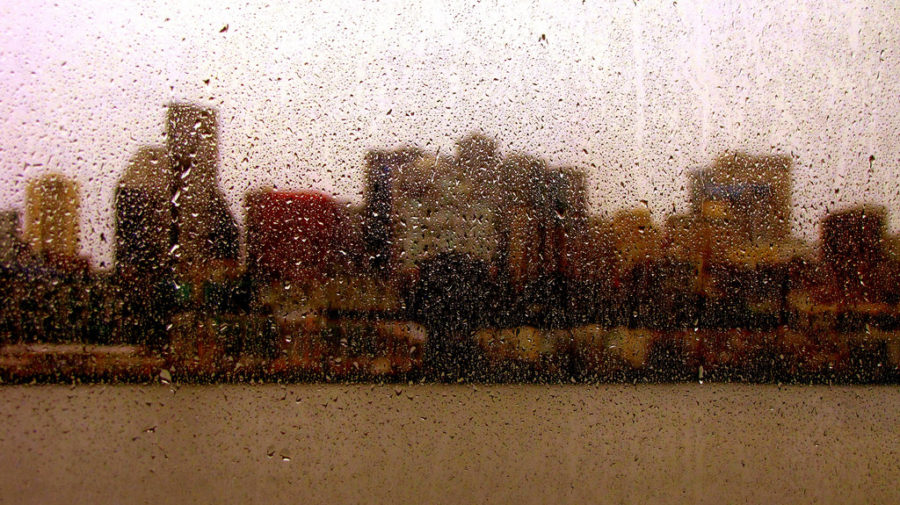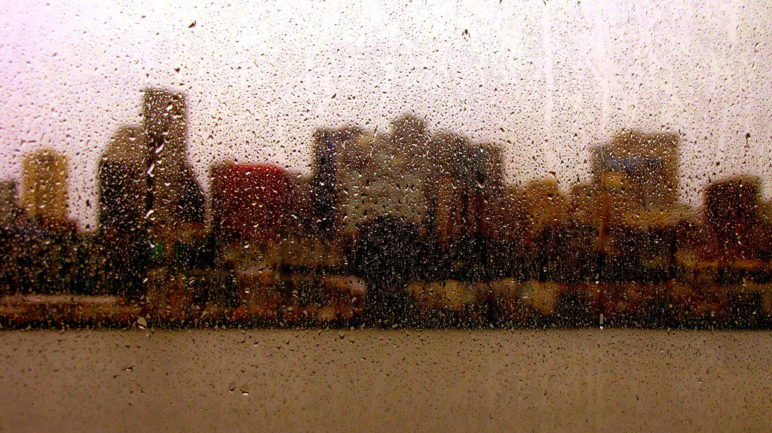Alan
At this week’s staff meeting, we were discussing the relentless rains this winter in Cascadia and wondering if it was a record (days of rain? Inches of rain? Days without sun? etc.) So the staff decided to do some digging and compiled what we’ve found in this week’s weekend reading.
Seattle has had few sunny days since October. According to the Seattle PI, “Of the 178 days that had passed since the water year began, Seattle had 123 with rain or snow, 149 with more than 70 percent cloud cover, and just nine—that’s nine, as in two more than a week—with less than 30 percent cloud cover.”
And from the Seattle Times, Jill Hammond, a Seattle-area resident—until four years ago—wrote from Tasmania, Australia, “I had no idea how normal people lived around the world; that is, with clear skies and daylight…”
Here’s an epic rain quote from the Northwest’s Tom Robbins in his breakthrough novel Another Roadside Attraction:
And then the rains came. They came down from the hills and up from the sound. And it rained a sickness. And it rained a fear. And it rained an odor. And it rained a murder. And it rained dangers and pale eggs of the beast. Rain poured for days, unceasing. Flooding occurred. The wells filled with reptiles. The basements filled with fossils. Mossy-haired lunatics roamed the dripping peninsulas. Moisture gleamed on the beak of the raven. Ancient Shamans rained from their homes in dead tree trunks, clacked their clamshell teeth in the drowned doorways of forests. Rain hissed on the freeway. It hissed at the prows of fishing boats. It ate the old warpaths, spilled the huckleberries, ran into the ditches. Soaking. Spreading. Penetrating. And it rained an omen. And it rained a poison. And it rained a pigment. And it rained a seizure.
The journals of Lewis and Clark are rain-full. It rained on the corps of discovery at its winter camp near the mouth of the Columbia for most of the winter, almost daily. From an analysis of Meriwether Clark’s journal on the winter of 1805-1806 at Clatsop:
The rain continues, with tremendous gusts of wind, which is tremendous. The winds violent, Trees falling in every direction, whorl winds, with gusts of rain Hail & Thunder, This kind of weather lasted all day, Certainly one of the worst days that ever was!
Less memorable but perhaps more typical were the string of phrases “we are all wet and disagreeable,” “cold and a dreadful day,” and most common of all, “the rain continued as usual.”
Anna
Joni Mitchell recited a poem, “This Rain,” based on an entry recounting a particularly soggy day from the diary of British Columbia painter and writer Emily Carr.
And Spokane–Coeur d’Alene novelist, short story writer, poet, and filmmaker (and Seattle dweller) Sherman Alexie on Twitter: “Seattle: Making rain angels is not nearly as fun as making snow angels.”
Kristin G.
Did you know that the Northwest has already received a year’s worth of water in five months? You heard that right. Cliff mass reports:
Five-and-one-half months into the 2016-2017 water year, many Northwest stations have ALREADY received their total water year amounts. You got that right… if there was not another drop of rain or flake of snow for the next 6.5 months, these stations would have their full normal precipitation for the water year.
And my personal favorite, the Oatmeal, describes the four seasons for Seattle weather perfectly.
Tarika
Here’s my most effective “overcast day mood lifter” song.
Keiko
What is two days of rain in Seattle? A WEEKEND.
Rain? FREE CAR WASH!
A bit old, but nevertheless very useful. Get up to speed on the affordable housing debate with Vox’s flashcards.
Pam
Here’s my rainy-mood antidote, with photographic proof of clear skies this winter in Washington.

Larches and Mt. Rainier, by Pam MacRae (used with permission).

Clear starry night in Mazama, by Pam MacRae (used with permission).

Green Lake, Seattle, by Pam MacRae (used with permission).
Eric
At a time when it seems that science is under assault, it’s more important than ever that we stand up to defend it. It might be easier to do if science would stop producing things like this: spiders could theoretically eat every human on Earth in one year. Why, science? Why must you do this to us?
DeSmog Blog casts a skeptical eye at the evidence supporting “biochar” as a climate solution.
Vancouver, BC, is considering adopting more indigenous place names for buildings and landmarks in the city.
Charles Mudede makes a provocative argument in favor of McDonald’s, or at least a dimension of it: “The diversity in urban and suburban McDonald’s is real. We on the left must recognize and act on and find ways to maintain the concrete utopias of diversity found in places like McDonald’s.”
Northwest collegiate hoops has hit the big time. Not since 1963 has the region put a team into the Final Four, and now all of sudden we have two. I’m not really a Dawgs fan, so I won’t feel any compunction this Saturday when I’m rooting for Gonzaga over South Carolina and Oregon over North Carolina. Fingers crossed for an all-Northwest championship game.
John
Jane Mayer continues her excellent reporting in the New Yorker on the corrosive effects of money on democracy.
Democracy Now! interviewed Bill McKibben on the Keystone XL pipeline. He reported that 350.org and other groups are planning a People’s March for the Climate this April 29, in Washington, DC, and sister marches around the Western Hemisphere. You can find details for local marches here.
Further on climate change, Vox ran its commentary and analysis of the President’s latest executive order to EPA on energy.
On the environmental justice front, Grist reported that to settle a lawsuit, the State of Michigan agreed to pay nearly $100 million to the City of Flint to replace old lead and steel water pipes and to provide bottled water to City residents in the interim. Read the details of the case and about the plaintiffs who sued.
And in the category of “climate change is already here,” Grist had this explainer on why snow in winter does not vindicate Science Deniers. In summary, higher temperatures send more moisture into the atmosphere, leading to more extreme storms in summer and winter.
John Abbotts is a former Sightline research consultant who occasionally submits material for Weekend Reading and other posts.











cbud
Consider turning P-Patch garden into a rice paddy.